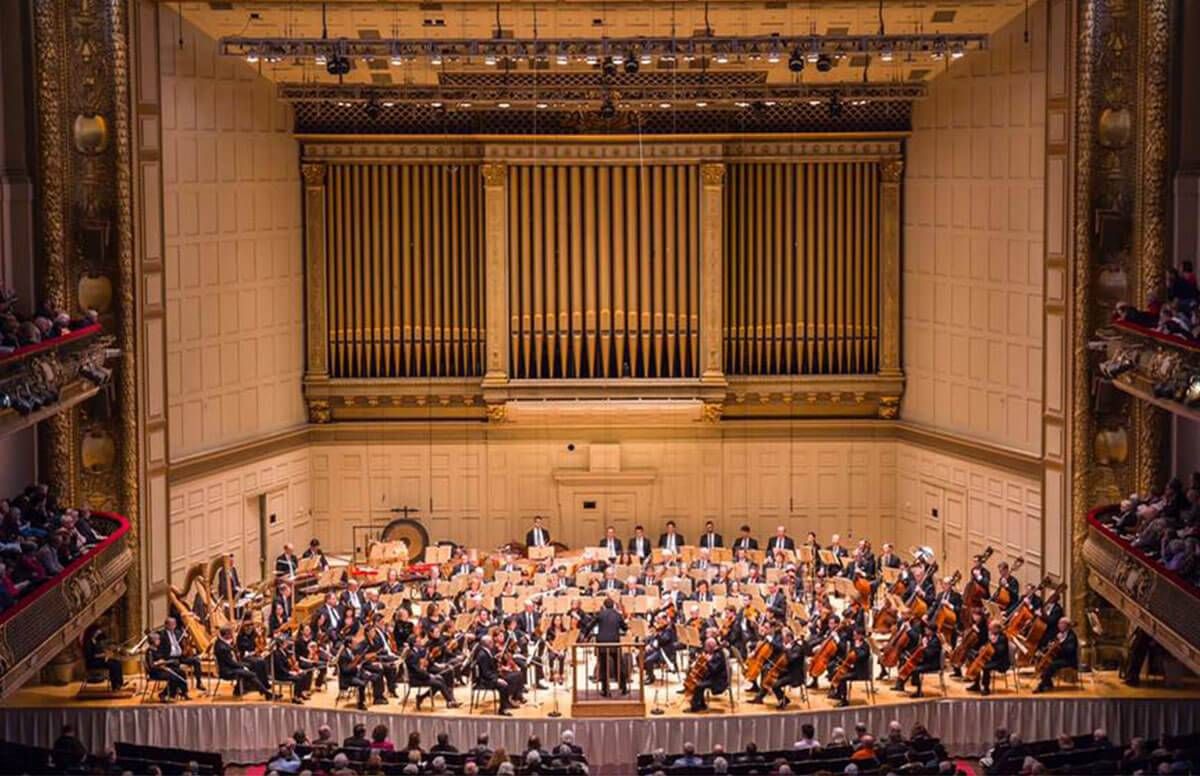The Joy of Ushering the Matinee
Friday afternoon is magical for faithful patrons and a thirtysomething usher
“I’m looking for my husband,” the woman explains, as I hold the leather upholstered door open to her.

“Well, I hope you find Mr. Right,” I joke. “Looks like there are plenty of eligible husbands inside of the hall today.”
This is typical repartee with patrons of the Friday matinee at the Boston Symphony Orchestra's Symphony Hall. I imagine it’s the same for other city orchestras across the country. Who, after all, is available in the middle of a weekday to take in a concert? Mainly retirees. Their caretakers. Occasionally their grown sons and daughters.
We are the doorkeepers to connection across languages and generations and a love of beautiful music.
They tell me what they need (the restroom, 99% of the time), whom they’re looking for (a husband, a wife, or perhaps even an aspirational spouse), and that they have had the same seats for over 40 years. I point them to the restrooms, help them find their mates (or at least try not to pair them with the wrong ones) and thank them for being such faithful subscribers. Without them, this institution would not be celebrating more than a century in the historic hall.
And I would not have the excellent job of ushering the Friday afternoon concert. I work other performances and events, just as the rest of the usher staff does. But the Friday matinee is the singular highlight of my week. I love to arrive early to see my favorite patrons fill the lounges and visit with friends. Their perfumes and colognes announce their arrival, and the sensory memory of my own deceased grandparents comes back to me like a comforting whisper that all will be well.
'Keeper of the Door'
As I stand by the entrances to the hall, I admire the floral scarves and natty bowties, the umbrellas and galoshes. I ask a regular, Thomas, if he was sick last Friday. Or was he just not a fan of Stravinsky? And Sylvia, I had missed her, too, and my whole week just felt off because she wasn’t there. Their eyes swirl as they laugh at my theatrics.
"Usher," the noun, derives from the Latin, osterius, or keeper of the ostium, the door. The ushers get the bodies into the seats in time for the bodies on stage to play the music that sometimes takes our minds far away from the hall. Although our patrons, just by showing up, hold open the door to something even more ethereal.
The folks of the Friday matinee are spending their twilight years enjoying the great composers, and remaining evergreen in their education. They offer me, a thirtysomething mother whose children find her irrelevant but tolerable, a vision that perhaps I will not become an elder bound to daytime talk shows and arthritic knees — the monolith of an older person that the media so often lampoons.
Sometimes I offer my arm to a patron as they step down and I notice that some don’t let go, even when they’ve caught their footing. They hold on until they’ve been led to their seat. The ushers and patrons alike are all showing one another through the doors. We are the doorkeepers to connection across languages and generations and a love of beautiful music.
Importance of the Symphony Audience
Of course, the news of symphony orchestras in the U.S. is often dismal if not depressing. Shrinking attendance, reliance upon endowment, and battles over contracts for musicians are common even for the most successful musical companies in the world.
In his 2012 book The Perilous Life of Symphony Orchestras: Artistic Triumphs and Economic Challenges, Robert Flanagan found that performance revenues of U.S. orchestras declined from 60% of budgets in 1940 to 41% in the 2005-06 season. Concern that symphonies will become an endangered species runs high.
I’m concerned that we are forgetting to protect a symphony audience, however. I don’t want to lament the dwindling numbers as much as I want to care well for the ones who buy tickets year after year. Keeping a fearful eye on the horizon serves no one, whereas cultivating a lively subscribership — the kind one wants to be when she grows up--is an important business, if not tantamount to minding budgets and contracts.
Recently, as a concert ended and I delivered a rolling walker to a patron, a woman, perhaps in her fifties, asked me, “Is today a special day? There were so many walkers and wheelchairs. Where did all these people come from with disabilities?”
I wanted to say, “They came from the Greatest Generation.” They survived the Great Depression. World War II. The loss of friends and the decay of their bodies. And still they show up here week after week, wheelchairs, walkers, and all.
But instead I said, “Well, today is just the Friday matinee. And that is always the most special day of the week.”

